 Do you have any idea how LUCKY we are that some people take on the burden of writing a novel? They're the ones willing to stare at a blank screen—then fill it with WORDS. And MORE words. Enough words for the likes of you and me to spend hours reading them.
Do you have any idea how LUCKY we are that some people take on the burden of writing a novel? They're the ones willing to stare at a blank screen—then fill it with WORDS. And MORE words. Enough words for the likes of you and me to spend hours reading them.
Philip Roth made the news a year or so ago. He was in a New York cafe when the young barrista approached saying that he, too, hoped to write a lot of really good words one day.
Roth's response...in so many words: DON'T DO IT! Writing words is HELL! It will ruin your life!
I recently attended a panel discussion at Hachette book publishers in which the moderator opened with the Philip Roth incident. "Do you agree with Roth?" she asked the three author-panelists. "Is writing a brutal process?"
Joshua Ferris was one of the panelists,* and he writes excellent words. To Rise Again at a Decent Hour, his third novel, was nominated for the 2014 Man Booker Prize; his second, Then We Came to the End, won the 2008 PEN/Hemingway Award.
Ferris talked about the difficulty of starting a novel: making the tough decisions about who tells the story and how it should be structured. He talked about finally settling down to write the first 100 pages of To Rise Again. And then ...
And then ... he realized it DIDN'T WORK, none of it. So he tossed all 100 pages. The pain of that, he said, was "excruciating." It wasn't just the words, he noted, or even the effort. It was the time, all that time subtracted from his life, time that came to nothing.
So why DO it? What makes authors like Ferris write a second...and a third book? Or in Philip Roth's case 40? We can't know, of course, but I suspect it's a need to to create a separate reality, to articulate a world view, or simply to tell a good story.
Whatever it is, our world is a better place because of that mystifying compulsion. Authors grapple with words, and we're the beneficiaries. So how lucky is that?
For book clubs:
Have any members ever written or tried to write fiction—either a novel or short story. Or perhaps tackled a memoir...or written poetry? How difficult is writing?
* The other fiction panelists were Jean Hanff Korelitz (You Should Have Known, 2014) and Edan Lepucki (California, 2014). There was also a nonfiction panel, which included Maureen Corrigan (So We Read On, 2014), Barbara Ehrenriech (Living with a Wild God, 2014), and Sam Kean (The Tale of the Dueling Neursurgeons, 2014).
 By Kristi Spuhler for LitLovers
By Kristi Spuhler for LitLoversThe way we read, and what we read, has been going through quite a transformation. With publishers focusing solely on what makes a bestseller, many exciting and groundbreaking reads are being passed over in favor of more cookie-cutter options. What’s a writer to do?
To find a way around these roadblocks many budding writers, as well as many previously published authors are turning to alternate methods to get their works published. According to Bowker, self-published titles saw a 59 percent increase from 2011 to 2012. And that number continues to grow.
With so many writers scrounging for the next best way to make sure their work makes it to the eyes of readers, one idea seems to be catching quite a bit of attention—Unbound.
A new groundbreaking method for publishing a work of writing, Unbound offers both established and budding authors the chance to go directly to the source when looking for the funds to publish their books—the readers! Much like similar sites Kickstarter and GoFundMe, Unbound allows writers to appeal to friends, followers and interested parties to pledge donations to see a project through to completion.
Don’t think the project is all one sided! Pledging to a project has its own set of advantages for the contributor as well. Depending on the project and the amount that you agree to contribute to the cause, each individual contributor has access to a set of rewards such as a signed copy of the printed book, or one-on-one meetings with the author.
The process is quite simple. Once you sign up for an account you then have access to author videos pitching their next project. From there you can choose which books you want to endorse and how much you want to contribute. Once the author is fully funded, their work then begins the publishing process. It’s really that simple.
To date, Unbound has helped to publish 54 books and they’ve raised over £1 million in funds from users. In an interview with writer Jason Hesse from Forbes.com, Unbound founder Dan Kieran stated, “Our users love to be involved in the process and have critical taste. They are not passive consumers – they’re micro patrons.” Sounds to us like the perfect opportunity to have a hand in getting the books YOU want to read published
What do you think about giving the power in publishing back to the readers? Would you like to jump in and choose which books are written and published? Leave us a comment and tell us what you think!
(Image courtesy of Kate Ter Harr.)
 By Kristi Spuhler for LitLovers
By Kristi Spuhler for LitLoversIf you're looking for a new read...but not QUITE ready for another long, involved one (a bit hungover from your last big one?), then head to the online journal Literal Latté.
The site's offerings, by published and unpublished writers, create the perfect blend of prose, poetry, and art. It's all just the right size to whet your appetite—like a sip of a carefully crafted cappuccino.
Debuting in 1994 as a print journal, Literal Latté was widely distributed throughout New York City's bookstores and coffeehouses. Its fresh approach to literature grabbed, and held, the attention of readers for nearly a decade.
Then in 2003 the journal published its last print copy. To broaden its reach—and share its writers with a wider audience—Literal Latté moved online, where it remains today as a go-to spot for both readers and writers.
For adventuresome and discerning readers (you, right?), it's a chance to find something new and exciting. For writers on the cusp of a publishing career, Literal Latté offers a way to distribute your work to an appreciative audience. (Go here to learn more about the submission process.)
So if you've got a few spare moments, pop on over to Literal Latté and take a look around. Be sure to let us know if, as a reader, if you found a favorite piece there...or, as a writer, you have a piece featured there. (Share the title or the URL in the comments.)
Image courtesy of nerissa's ring.
 By Kristi Spuhler for LitLovers
By Kristi Spuhler for LitLoversGet excited Margaret Atwood fans, get very excited! The renowned author of The Handmaid’s Tale and The MaddAddam Trilogy is penning a new work.
All YOU have to do is wait around for 100 years to read it.
Yes, you read that correctly. Atwood's putting the finishing touches on what’s sure to be another amazing book, but an actual copy won’t be available for public eyes until 2114.
We understand this might sounds a little strange to you—why would an author spend so much time penning her next work only to hide it away for 100 years? The reason: Atwood is the first author commissioned to take part in the Future Library.
This astonishing public artwork began with the planting of a forest of 1,000 trees just outside Oslo, Norway, this past summer. In 100 years, this forest will be used to print a special anthology of never-before-seen books penned specifically for the project.
While the forest grows, the Future Library’s creator, Katie Paterson, along with a team of literary experts from the Future Library trust, will approach one writer each year and challenge him or her to “conceive and produce a work in the hopes of finding a receptive reader in an unknown future.”
After they’ve been written, the manuscripts will be locked away in a specially designed room in the Deichmanske public library.
The room, which will be lined with wood from the forest, will display the names of participating authors and the titles of their contributed works, but the manuscripts will remain unavailable until they are printed at the completion of the project.
Atwood herself seems to be positively reveling in the secrecy of the undertaking, saying to Guardian writers:
It's part of the contract you can't tell anybody what you're writing. I'm finding it very delicious, because I get to say to people like you [the Guardian], I'm not telling. But I will say that I've bought some special archival paper, which will not decay in its sealed box over 100 years.
Though it looks like we’ll never know what’s in store for the lucky readers who haven’t been born, yet, one things certain—they’re in for a literary treat.We can’t wait to see what writers are chosen next to submit their works. Which authors would you like to see get involved in the project? So...how does it feel not being able to read your favorite writer’s newest work?
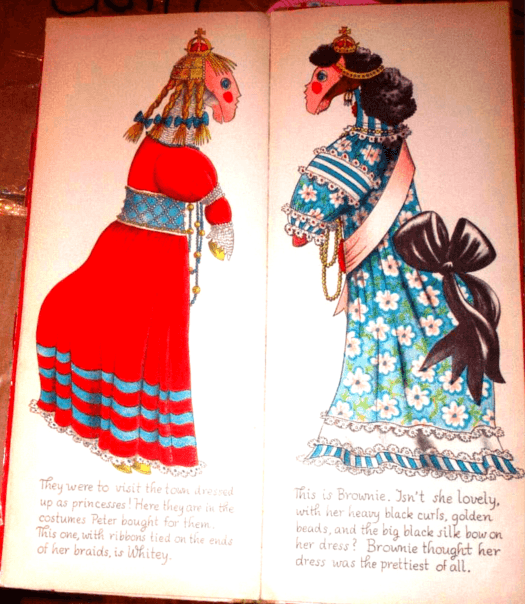
For LitLovers of ALL ages: we couldn't resist sharing this gem—Three Little Horses by Dutch children's author Piet Worm (1909-1966). One of our readers, contacted us to see if we could help her recall the title of a favorite childhood book, one she remembers from her grandmother's house.
We were clueless (not for the first time)—but she persevered and graciously sent us the results. Thank you, Sue! Some text was lost when we brightened up the photo, but we added a bit more contrast so you could decipher some of Piet's story.
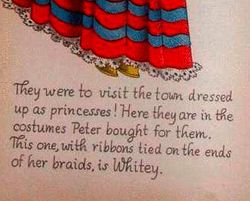
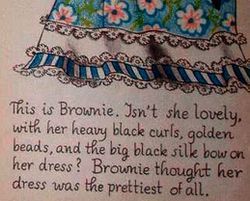

Here's Piet Worm himself. Is he climbing IN or OUT of his imaginative world here? (Lovely metaphor.)
If you have a favorite childhoold book, let us know. But, for heaven's sake, PLEASE don't ask us to help you recall the title. We don't like feeling clueless!
 By Kristi Spuhler for LitLovers
By Kristi Spuhler for LitLoversNow here's a neat idea: a subscription service that identifies specific books just for you—and delivers them straight to your door!
The website, Just The Right Book, chooses titles—based on your personal reading preferences—and sends them to you once a month. Real books...you know, the ones with pages? The things we still love to hold in our hands?
This is how it works: head to the site and place your order for the type of subscription you want. As you navigate through the checkout process, you’ll be prompted to fill out a questionnaire about your favorite genres, titles, and authors. Once they have your reading profile, they’ll begin shipping you personalized novels on a monthly basis (or bi-monthy or quarterly—it's up to you).
For something more daring...there's Book Riot, another subscription service. This one requires a more open-minded reader—it's NOT personalized to your tastes but based on its own editors' monthly picks. Which means you get a surprise every month!—a package that includes the book (usually fiction), a description of that month's theme, author interviews, and other related articles.
So if you’re feeling adventurous give one (or both!) of these services a try. Think you could trust someone else pick your next read? And if you like it, a subscription makes a great gift, especially one from Just The Right Book, which has categories for adults, teens or kids.
 By Kristi Spuhler for LitLovers
By Kristi Spuhler for LitLoversWhat if Ishmael had a cellphone, or any phone for that matter? What kinds of messages would he receive?
That’s the basic premise behind callmeishmael.com—a site where readers call in to share powerful moments they experienced in a favorite book. Maybe the book inspired a new way of thinking or offered comfort during a rough time.
Call Me Ishmael is accessible to anyone, anywhere in the U.S. It's as easy as leaving a voicemail: just dial 774.325.0503, then go to voicemail. After listening to a brief message, record and share your story about what's made your favorite book special to you. Each weekday, "Ishmael" chooses one story to transcribe, record and upload onto the site.
Listening to readers share stories gives us a deeper appreciation of the power of books. It's a terrific way to celebrate literature's unique ability to shape our lives.
But don’t just take our word for it—give it a try yourself. Take a few moments to check out some of the transcriptions on Ishmael. And, of course, leave a story of your own.
So...what story would that be?
*Photo image courtesy of Billy Brown.
 By Kristi Spuhler for LitLovers
By Kristi Spuhler for LitLoversWe've all been there—slogging our way through a lofty tome, every turning page feeling like it's 50 pounds. (Moby-Dick, anyone?) So you've got to wonder: why are we doing this to ourselves?
Sure, we love that high we get when we slide past the finish line at the end of a task, but is reading a task? Isn't it something we should derive pleasure from?
So here's the question: Is it okay to abandon a book if you don't connect with it? Two writers recently took up the question in the The Guardian (of the UK)—and in a nutshell, here's the gist of their debate:
Alex Cross: The best books ...deserve more than being treated like a passing bit of entertainment.... I've nothing against reads that are quick and dirty fun, but seriously good books are immersive experiences, demanding of time and patience. Respect them.
Tom Lamont: But there is a masochistic sense out there—isn't there?—that it's somehow bad form or disrespectful or helpful to Hitler not to finish books. Very austere, very British. Very clear your plate.
If you're in the mood for delightful snark and a sprinkling of wit, do take a look at the full article.
Here's what we think: Some books take a while to get off the ground; others hit slow points along the way. Give those books time. But if chapter after chapter you feel no real emotional pull, we say put 'er down. Find something new.
Some LitLovers readers have told us on Facebook and on their Featured Club page about books they couldn't make their way through—here are several:
Anna Karenina (Leo Tolstoy)
A Confederacy of Dunces (John Kennedy Toole)
Cutting for Stone (Abraham Verghese)
Last Night in Twisted River (John Irving)
Moby-Dick (Herman Melville)
One Hundred years of Solitude (Gabriel Garcia Marquez)
Open City (Teju Cole)
A Thousand Splendid Suns (Khaled Hosseini)
War and Peace (Leo Tolstoy)
What about you? Are you determined to finish a book once you start it? Or are there some you've given up on? Let us know?
*Photo image courtesy of umjanedoan.
In case you you thought our previous post "Publishers Feelin' the Blues" was overstating the case, take another look. No, we're not crazy: there really is a BLUE THING going on in the publishing world.
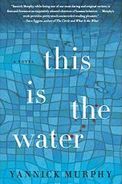 |
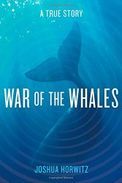 |
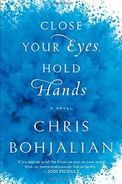 |
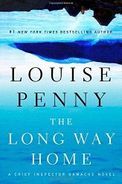 |
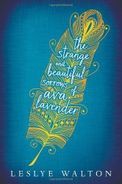 |
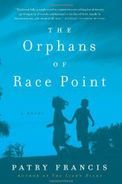 |
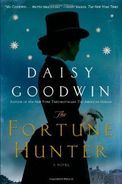 |
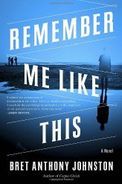 |
| (Click on cover image to see Reading Guide.) |
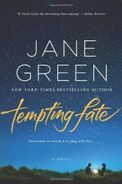 |
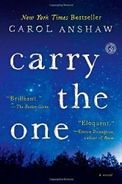 |
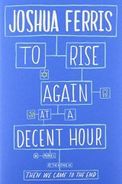 |
It's weird...just sayin'. One of our readers commented that there must have been a sale on blue ink. Best explanation so far! Anyone else got an idea?
If you're watching any one or more of these Book-to-TV iterations—or if you've got a favorite—let us know.
Books to TV True Blood—Dead Until Dark by Charlaine Harris is the inspiration behind TV's True Blood. The story follows waitress Sookie Stackhouse through Bon Temps—a factional Louisiana town inhabited by both vampires and humans. Dexter—The first novel in Jeff Lindsay's series Darkly Dreaming Dexter, provided the inspiration for the popular TV show. The story chronicles the life of Dexter Morgan, a blood- splatter analyst for the Miami police department who moonlights as a serial killer. Game of Thrones—The first installment in The Song of Ice and Fire series penned by George R.R. Martin, Game of Thrones, inspired the hit HBO series. The story follows the leaders of several noble houses as they battle for the throne of the seven kingdoms. Orange Is the New Black—Piper Kerman's memoir spawned the Netflix original series by the same title. The plot revolves around Piper Chapman after she is sentenced to 15 months in Federal prison for her involvement with drug trafficking. Boardwalk Empire—Set during the prohibition era of the 1920s, Nelson Johnson's novel, Boardwalk Empire: The Birth, High Times, and Corruption of Atlantic City, centers around "Nucky" Thompson. The HBO series returns for its final season this fall (2014). Sleepy Hollow—Most everyone knows Washington Irving's tale of the headless horseman that terrorizes Sleepy Hollow. The FOX series of the same name gives the legend a modern facelift with a few new surprises. Justified—Based on Elmore Leonard's three works—Pronto, Riding the Rap, and Fire in the Hole—the TV series follows Raylan Givens as he enforces his own form of justice in his hometown of Harlan, Kentucky.







